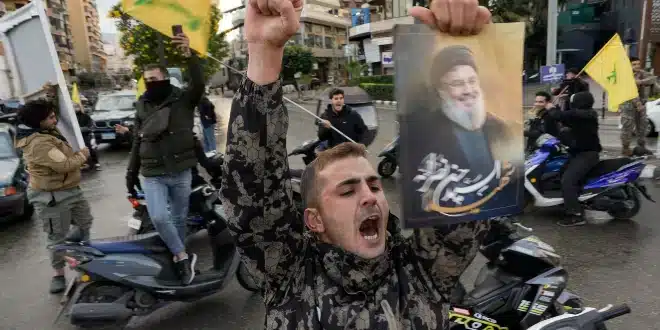The ceasefire between Israel and Hezbollah was welcomed by many across the Middle East as a sign of progress after more than a year of conflict. However, for Palestinians in Gaza and the families of hostages held there, the agreement seemed to signal the continuation of their suffering. For them, it marked yet another failure to address the broader conflict that has plagued the region for nearly 14 months.
Many Palestinians had hoped that any ceasefire with Hezbollah would also include a truce for Gaza. Families of those taken hostage when Hamas militants attacked southern Israel in October 2023 were particularly hopeful that the ceasefire would lead to the release of their loved ones. Unfortunately, the agreement only addressed the fighting in Lebanon, leaving these unresolved issues untouched.
The two conflicts, though interconnected, are fundamentally different. In Lebanon, Israel’s main objective was to push Hezbollah back from the border and stop its attacks into northern Israel. The ceasefire was meant to achieve this.
In Gaza, however, Israel’s goals are much more extensive. Prime Minister Benjamin Netanyahu has consistently stated that Hamas must be completely eradicated, and Israel must maintain control over parts of Gaza. These demands have remained non-negotiable, despite months of diplomatic efforts and ongoing fighting.
For Palestinians in Gaza, the situation continues to deteriorate under Israel’s ongoing military campaign, which has left large parts of the territory in ruins. As the second winter of the war sets in, many are living in overcrowded, makeshift camps, struggling with hunger and the harsh weather conditions.
For many, the ceasefire in Lebanon only worsens their sense of isolation. With Hezbollah halting its attacks, the focus of Israeli military efforts is likely to shift fully to Gaza. Palestinians fear that without support from the front in Lebanon, they will face even more intense pressure from Israeli forces.
In Gaza’s northern regions, Israeli military operations have been relentless, cutting off aid and pushing the population to the brink of famine. In signing the ceasefire, Hezbollah abandoned its previous stance that it would cease attacks only if Israel ended its war in Gaza. This shift could deepen the sense of abandonment felt by Palestinians in Gaza, especially as they now face the reality of fighting alone.
Hamas, already weakened by Israel’s military actions, may find it even harder to maintain popular support. The group’s strategy, which initially sought to rally other militant groups to the cause, now appears to be faltering. Analysts suggest that Hamas may dig in its heels, continuing its resistance in Gaza while insisting on a complete Israeli withdrawal in exchange for the release of hostages.
For the families of hostages, the ceasefire agreement highlighted their ongoing despair. Many Israeli families, whose loved ones are still held by Hamas, are growing increasingly frustrated with the Israeli government’s focus on the situation in Gaza instead of prioritizing the return of hostages. The lack of movement on this issue is causing deep disillusionment.
Families like that of Omer Wenkert, a 23-year-old hostage, feel that the Israeli government is neglecting the issue of hostages in its broader military objectives. For some, the emotional toll is unbearable, as they mark another birthday for a loved one still held in Gaza, far from home and still awaiting release.


